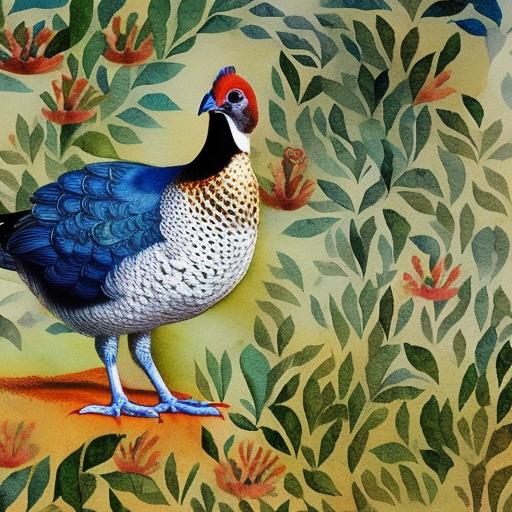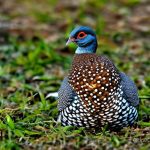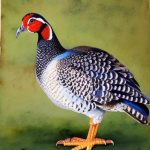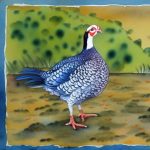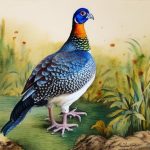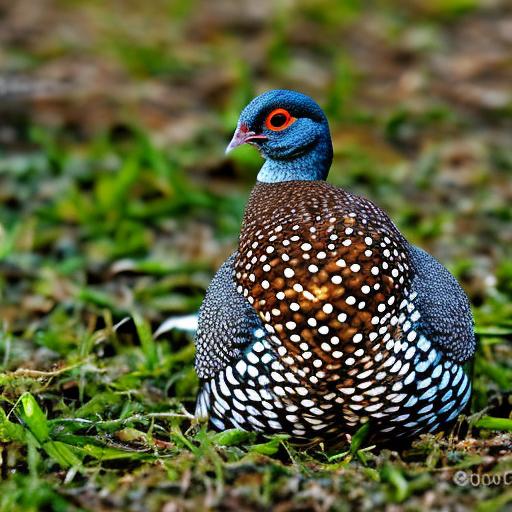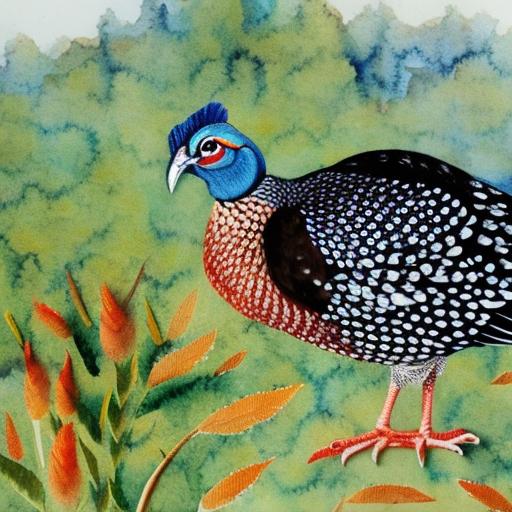Guinea fowl, also known as guinea hen or guinea bird, are a unique and fascinating species of poultry that have been domesticated for thousands of years. They are native to the African continent and are closely related to other game birds such as pheasants and turkeys. Guinea fowl are known for their distinctive appearance, with a small, round body, long neck, and small head. They are also known for their loud, distinctive call, which can be heard from a great distance. Guinea fowl are popular for their ability to control pests such as ticks, flies, and other insects, making them a valuable addition to any farm or homestead.
Guinea fowl come in a variety of breeds, each with its own unique characteristics and traits. They are hardy and adaptable birds that can thrive in a wide range of climates and environments. Guinea fowl are also known for their excellent foraging abilities, making them well-suited to free-range or pasture-based systems. They are also relatively low-maintenance birds, requiring minimal care and attention compared to other poultry species. Overall, guinea fowl are an interesting and valuable addition to any flock, and their unique traits and characteristics make them a popular choice for poultry enthusiasts around the world.
Key Takeaways
- Guinea Breeds Fowl are a unique and hardy breed of domesticated fowl known for their insect-eating abilities and distinctive calls.
- Guinea Breeds Fowl are small, agile, and have a wild appearance with a variety of colors and patterns, making them popular for pest control and ornamental purposes.
- Popular Guinea Breeds Fowl include the Helmeted Guinea Fowl, the Vulturine Guinea Fowl, and the Crested Guinea Fowl, each with their own unique characteristics and traits.
- Care and housing for Guinea Breeds Fowl should include a secure coop or shelter, access to a large outdoor area, and protection from predators and extreme weather conditions.
- Breeding and reproduction of Guinea Breeds Fowl can be challenging, but with proper care and attention to their natural behaviors, successful breeding can be achieved.
Characteristics of Guinea Breeds Fowl
Guinea fowl are known for their striking appearance, with a small, round body covered in speckled feathers that come in a variety of colors including pearl gray, lavender, royal purple, and white. They have a small head with a distinctive helmet-like crest and a long, slender neck. Guinea fowl also have a unique call that is loud and distinctive, making them excellent alarm birds that can alert their owners to potential threats or predators. They are also known for their excellent foraging abilities, and they can consume large quantities of insects and other pests, making them valuable for pest control on farms and homesteads.
In addition to their distinctive appearance and foraging abilities, guinea fowl are also known for their hardiness and adaptability. They are able to thrive in a wide range of climates and environments, from hot, dry regions to cooler, more temperate areas. Guinea fowl are also relatively low-maintenance birds, requiring minimal care and attention compared to other poultry species. They are also known for their strong maternal instincts and can be excellent parents when it comes to raising their young. Overall, guinea fowl are unique and fascinating birds with a range of characteristics that make them a valuable addition to any flock.
Popular Guinea Breeds Fowl
There are several popular breeds of guinea fowl that are commonly kept by poultry enthusiasts around the world. The most common breed is the Helmeted Guinea Fowl, which is known for its distinctive appearance with a small, round body covered in speckled feathers and a helmet-like crest on its head. This breed comes in a variety of colors including pearl gray, lavender, royal purple, and white. Another popular breed is the Vulturine Guinea Fowl, which is larger and more colorful than the Helmeted Guinea Fowl, with bright blue feathers on its neck and chest. The Crested Guinea Fowl is another popular breed, known for its unique crest of feathers on its head.
Other popular breeds of guinea fowl include the White Guinea Fowl, which is prized for its pure white feathers, and the Coral Blue Guinea Fowl, which has a striking blue coloration. Each breed of guinea fowl has its own unique characteristics and traits, making them well-suited to different environments and purposes. Whether you are looking for a hardy, adaptable bird for pest control or a strikingly beautiful addition to your flock, there is a guinea fowl breed to suit your needs.
Care and Housing of Guinea Breeds Fowl
Guinea fowl are relatively low-maintenance birds that require minimal care and attention compared to other poultry species. They are hardy and adaptable birds that can thrive in a wide range of climates and environments. Guinea fowl are well-suited to free-range or pasture-based systems, as they are excellent foragers and can consume large quantities of insects and other pests. However, they can also be kept in a coop or aviary if necessary, as long as they have access to plenty of space to roam and forage.
When it comes to housing guinea fowl, it is important to provide them with a secure shelter that protects them from predators and the elements. A sturdy coop or aviary with plenty of roosting space is essential, as guinea fowl prefer to roost off the ground at night. It is also important to provide them with access to fresh water and high-quality feed to ensure they remain healthy and well-nourished. Overall, guinea fowl are relatively low-maintenance birds that can thrive in a variety of housing systems, making them a versatile addition to any flock.
Breeding and Reproduction of Guinea Breeds Fowl
Breeding guinea fowl can be a rewarding experience for poultry enthusiasts, as these birds are known for their strong maternal instincts and excellent parenting skills. Guinea fowl typically reach sexual maturity at around six months of age, at which point they will begin to lay eggs. The eggs are small and speckled, similar in appearance to quail eggs. Guinea fowl hens are excellent mothers and will diligently care for their eggs until they hatch.
When it comes to breeding guinea fowl, it is important to provide them with a secure nesting area where they can lay and incubate their eggs in peace. Once the eggs hatch, the chicks will require warmth and protection from predators, so it is important to provide them with a safe and secure environment in which to grow and develop. Overall, breeding guinea fowl can be a rewarding experience that allows poultry enthusiasts to witness the natural behaviors and instincts of these fascinating birds.
Health and Common Diseases of Guinea Breeds Fowl
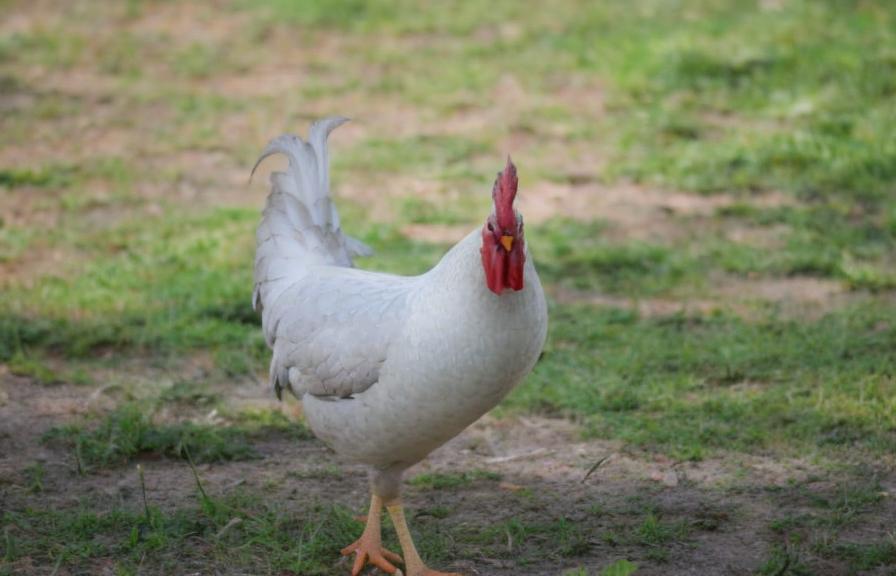
Guinea fowl are generally hardy and resilient birds that are not prone to many common poultry diseases. However, they can still be susceptible to certain health issues if not properly cared for. One common health issue in guinea fowl is respiratory infections, which can be caused by poor ventilation or exposure to drafts. It is important to provide guinea fowl with a well-ventilated shelter that protects them from extreme temperatures and drafts.
Another common health issue in guinea fowl is parasites such as mites and lice, which can cause irritation and discomfort for the birds. Regular inspections and treatments for parasites are essential to ensure the health and well-being of guinea fowl. Additionally, providing guinea fowl with a balanced diet that meets their nutritional needs is important for maintaining their overall health and immunity.
Overall, guinea fowl are relatively low-maintenance birds when it comes to health care, but it is still important to provide them with proper housing, nutrition, and preventative care to ensure they remain healthy and thriving.
Conclusion and Final Thoughts on Guinea Breeds Fowl
In conclusion, guinea fowl are unique and fascinating birds that have been domesticated for thousands of years. They are known for their striking appearance, excellent foraging abilities, strong maternal instincts, and hardiness. There are several popular breeds of guinea fowl that are commonly kept by poultry enthusiasts around the world, each with its own unique characteristics and traits.
When it comes to caring for guinea fowl, it is important to provide them with a secure shelter that protects them from predators and the elements. Guinea fowl are relatively low-maintenance birds that can thrive in a variety of housing systems, making them a versatile addition to any flock.
Breeding guinea fowl can be a rewarding experience that allows poultry enthusiasts to witness the natural behaviors and instincts of these fascinating birds. While guinea fowl are generally hardy and resilient birds, it is still important to provide them with proper housing, nutrition, and preventative care to ensure they remain healthy and thriving. Overall, guinea fowl are an interesting and valuable addition to any flock, and their unique traits and characteristics make them a popular choice for poultry enthusiasts around the world.
If you’re interested in learning more about guinea fowl breeds, you might also want to check out this informative article on when guinea fowl lay eggs. It provides valuable insights into the breeding and egg-laying habits of guinea fowl, which can be helpful for anyone considering raising these unique birds.
FAQs
What are the different breeds of guinea fowl?
There are several different breeds of guinea fowl, including the Helmeted Guinea fowl, the Crested Guinea fowl, the Vulturine Guinea fowl, and the Plumed Guinea fowl.
What are the characteristics of guinea fowl breeds?
Guinea fowl breeds vary in size, color, and feather patterns. They are known for their distinctive helmet-like casque on their heads and their loud, distinctive calls.
What are the uses of guinea fowl breeds?
Guinea fowl are primarily kept for their meat, eggs, and pest control abilities. They are also sometimes kept as ornamental birds due to their unique appearance.
What are the care requirements for guinea fowl breeds?
Guinea fowl require a secure coop or housing to protect them from predators, as well as access to a large outdoor area for foraging. They also need a balanced diet and access to fresh water.
Are guinea fowl breeds suitable for backyard poultry keeping?
Yes, guinea fowl can be suitable for backyard poultry keeping, as they are relatively low-maintenance and can help control pests in the area. However, they can be noisy and may not be suitable for all residential areas.
Meet Walter, the feathered-friend fanatic of Florida! Nestled in the sunshine state, Walter struts through life with his feathered companions, clucking his way to happiness. With a coop that’s fancier than a five-star hotel, he’s the Don Juan of the chicken world. When he’s not teaching his hens to do the cha-cha, you’ll find him in a heated debate with his prized rooster, Sir Clucks-a-Lot. Walter’s poultry passion is no yolk; he’s the sunny-side-up guy you never knew you needed in your flock of friends!

